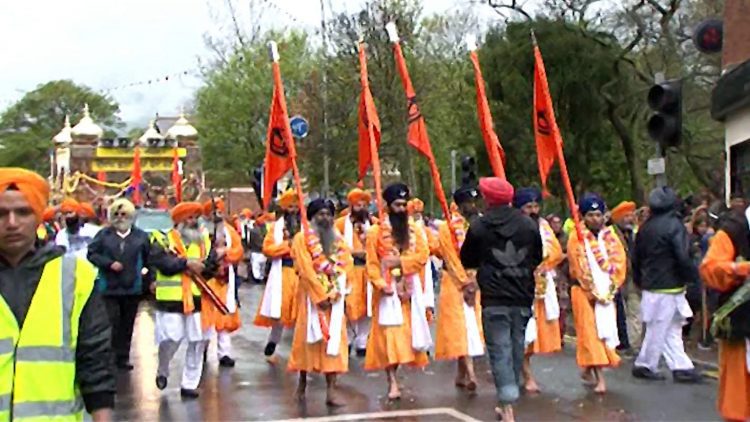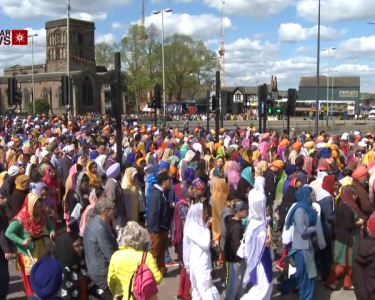Thousands will be taking to Leicester’s streets later this month for the annual Vaisakhi procession – one of the most important dates in the Sikh calendar.
The spring festival, which happens in April every year, is a day to celebrate 1699 – the year when Sikhism was born as a collective faith.

To celebrate Vaisakhi, Sikhs visit places of worship called Gudwaras and enjoy parades and special processions.
The event, known as Nagar Kirtan, takes place on Sunday, April 30, and traditionally sees a huge number of followers taking part on the walk between two of the city’s best-known Sikh temples, or Gurdwaras.
The procession will set off from Guru Nanak Gurdwara, in Holy Bones, at 11.30am and will make its way across the city to arrive at the Guru Tegh Bahadur Gurdwara, East Park Road, at around 3pm.
It will follow a route comprising Great Central Street, Vaughan Way, St Nicholas Circle, St Nicholas Place, High Street, Clock Tower, Gallowtree Gate, Granby Street, Northampton Street, Charles Street, St Georges Way, Swain Street, Sparkenhoe Street, St Peters Road, East Park Road, Leicester Street and Roseberry Street.
Rolling road closures are being put in place along the route to enable the procession to pass safely. Nagar Kirtan is one of the major events on the Leicester Sikh community’s calendar, with up to 10,000 people expected to take part.
Elsewhere in the city, Leicester Museum and Art Gallery, in New Walk, will be holding a Vaisakhi-themed day of activities and events, shedding light on the religious festival through a 3-D digital showcase by the Sikh Museum Initiative, as well as free arts and crafts activities, lectures and stalls.
The family-friendly event takes place on Saturday, April 22, from 11am to 3pm and entry is free. More details are available here https://www.leicestermuseums.org/Vaisakhi2023
Vaisakhi is the festival which celebrates the founding of the Sikh community, the Khalsa, in 1699.






